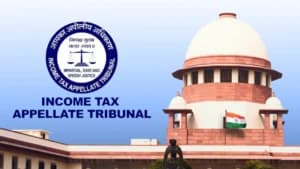The Delhi High Court on Wednesday, April 9, dismissed a Public Interest Litigation (PIL) that sought the formulation of regulations to protect the national bird, the peacock, from death by electrocution in the national capital. The Court observed that the power to make laws or regulations does not lie with the judiciary and such matters must be handled by the appropriate authorities.
The PIL had been filed by an NGO, Save India Foundation, requesting judicial intervention to create safety measures for peacocks, alleging that the birds are dying due to open electric wires and poles, and that there are no existing Standard Operating Procedures (SOPs) or safety protocols in place to protect them.
“We don’t encourage such matters. We may have sympathy with your cause but we cannot appreciate filing of petitions like this,”
— Chief Justice Devendra Kumar Upadhyaya, Delhi High Court.
The division bench, comprising Chief Justice Devendra Kumar Upadhyaya and Justice Tushar Rao Gedela, firmly stated that the Court cannot legislate, and such reliefs must be sought from the appropriate government departments or legislature.
The Court took note that the petitioner had recently made a representation on April 3 to the Department of Forests and Wildlife, the Secretary of Power of the Delhi Government, and other relevant authorities. However, the PIL was filed just six days later, without waiting for any official response from the authorities.
Read also: Delhi High Court: No Interest on DVAT Refund Delay If Dealer’s Fault, Rules Court
“There is a whole system put in place for meeting all your grievances. Only in case of failure on their part is when you approach court,”
— Delhi High Court.
The Court questioned the petitioner's counsel on the premature filing of the PIL and asked why the petition was submitted without giving the authorities enough time to respond to the representation. The bench further stressed that "there is no presumption in law that there will be no response" from government bodies.
During the hearing, the petitioner argued that he was seeking regulations to prevent further deaths of peacocks due to electrocution, emphasizing the bird's status as the national symbol and the lack of any legal protection mechanisms against such incidents.
In response, the Court orally remarked:
“Then approach the legislature if there is no law. What is this kind of an argument? We cannot legislate. We cannot frame any regulation.”
The counsel representing some electricity distribution companies (DISCOMs) present in the matter stated that no such representation had been received by them so far.
Given these observations, the Court refused to entertain the petition and dismissed it, stating that:
“We are not inclined to entertain this petition. The petition is dismissed.”
However, the Court did grant liberty to the petitioner to approach the concerned authorities again, and to submit a comprehensive and detailed representation covering all aspects and legal grounds of their demand.
“Such a representation, when made, shall be considered and decided, and appropriate action shall be taken by the authorities,”
— Delhi High Court Order.
The PIL had alleged that due to administrative inactivity and lack of coordination among departments, peacocks were continuously dying due to exposed electrical infrastructure, and there was a clear absence of regulations, protocols, or laws aimed at protecting them.
“Peacock is the National Bird but being killed due to the open electric wires, poles. There are no regulations, law for protection of the National Bird hence the authorities are passing the buck from one another,”
— Excerpt from the PIL filed by Save India Foundation.
The petitioner also highlighted that their organization had conducted extensive groundwork and collected data on the death of peacocks across Delhi due to electrocution. It was in view of this groundwork and perceived administrative apathy that the petitioner sought the Court’s directions for framing specific safety guidelines.
While the Court did not dispute the cause raised by the petitioner, it firmly reiterated that the jurisdiction of the Court does not extend to lawmaking, and governmental channels must be exhausted before judicial intervention is sought.
Title: Save India Foundation v. Department of Forests & Wildlife & Ord















